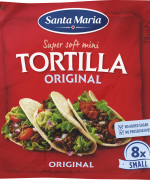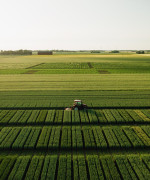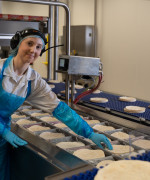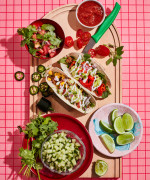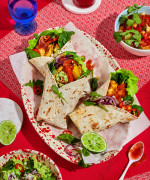Tortillas constitute Paulig’s biggest product category, and the main factor influencing the climate footprint of these wheat tortillas is the ingredients, representing over 70% of the total impact.
- As a food and beverage company that aims to be a sustainable frontrunner, we need to be aware of where and how we can make the biggest difference. Knowing that the ingredients play the main role here, we have in the last years focussed our efforts on the wheat flour used in Santa Maria tortillas, says Paula Backman, Chief Marketing Officer at Paulig.
More sustainable wheat flour

In 2021, Paulig announced its sustainable farming partnership with Lantmännen, a Swedish agricultural cooperative. As of harvest 2022, Lantmännen Cerealia supplies Paulig with wheat flour cultivated using more sustainable methods, reducing the carbon dioxide emissions from the flour by up to 30 per cent (compared to the average Swedish winter wheat emissions in 2015) and promoting biodiversity.
Carbon-neutral factories
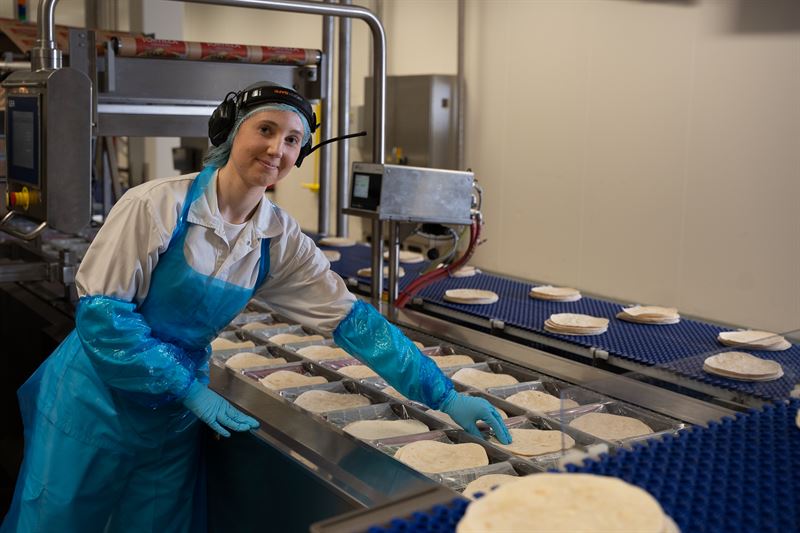
Every year, millions of tortillas are baked at Paulig’s factories in Sweden and UK. And with ambitious climate targets approved by the Science Based Target Initiative, actions have been taken to reduce the climate impact from the tortilla production. During the last decade, the CO2 emissions in the factories have been cut by 98% and the factories are today certified as CarbonNeutral® buildings.
Less plastic

Already in 2018, Paulig relaunched the tortilla packaging, introducing a paper-front and reducing the amount of plastic by 150 tonnes. Consumers have since been able to recycle the packaging partly as paper. But the packaging improvements are far from done.
- We are aiming high. By 2030, 100% of Paulig’s packaging should be recyclable and made from renewable or recycled material. The key here is to find the best solution to preserve food, offer great tasting products with sufficient shelf life, and prevent food waste whilst at the same time minimising climate impact. With tortillas, we have taken steps in the right direction, and we are committed to continuing this journey, says Paula Backman.

Santa Maria Wheat Tortilla Original, with up to 50% lower climate impact, will enter the Nordic and Baltic markets during 2023.
- We know that Tex Mex moments are all about sharing tasty meals and celebrating togetherness. At the same time, many consumers are concerned about the wellbeing of our planet. All of us at Paulig are very proud that we can now help consumers enjoy tacos, fajitas, wraps and burritos with an even greater aftertaste, says Paula Backman.
Actions to lower the climate impact for tortillas
This is what has been achieved so far for Santa Maria Wheat Tortilla Original sold to the Nordic and Baltic markets:
- Up to -30% CO2 emissions from wheat flour in 2023 compared to the average Swedish winter wheat emissions in 2015
- -35% CO2 emissions from packaging due to renewable material and less plastic since 2018
- -98% CO2 emissions in Paulig’s tortilla factories in Sweden and the UK. The factories are certified as CarbonNeutral®.
More information
- Paulig and Lantmännen announce sustainable farming partnership
- Paulig and Lantmännen take the next steps in their partnership to achieve a more sustainable cultivation methods on 20 Swedish farms
*According to a 2023 life-cycle analysis conducted by RISE (Research Institutes of Sweden), a 1 kg pack of Santa Maria Original Wheat Tortillas (Medium, 8 pcs), from farming to market, produces 0.54 kg of CO2 emissions. This represents a reduction of up to 50% compared to a study performed in 2012.

